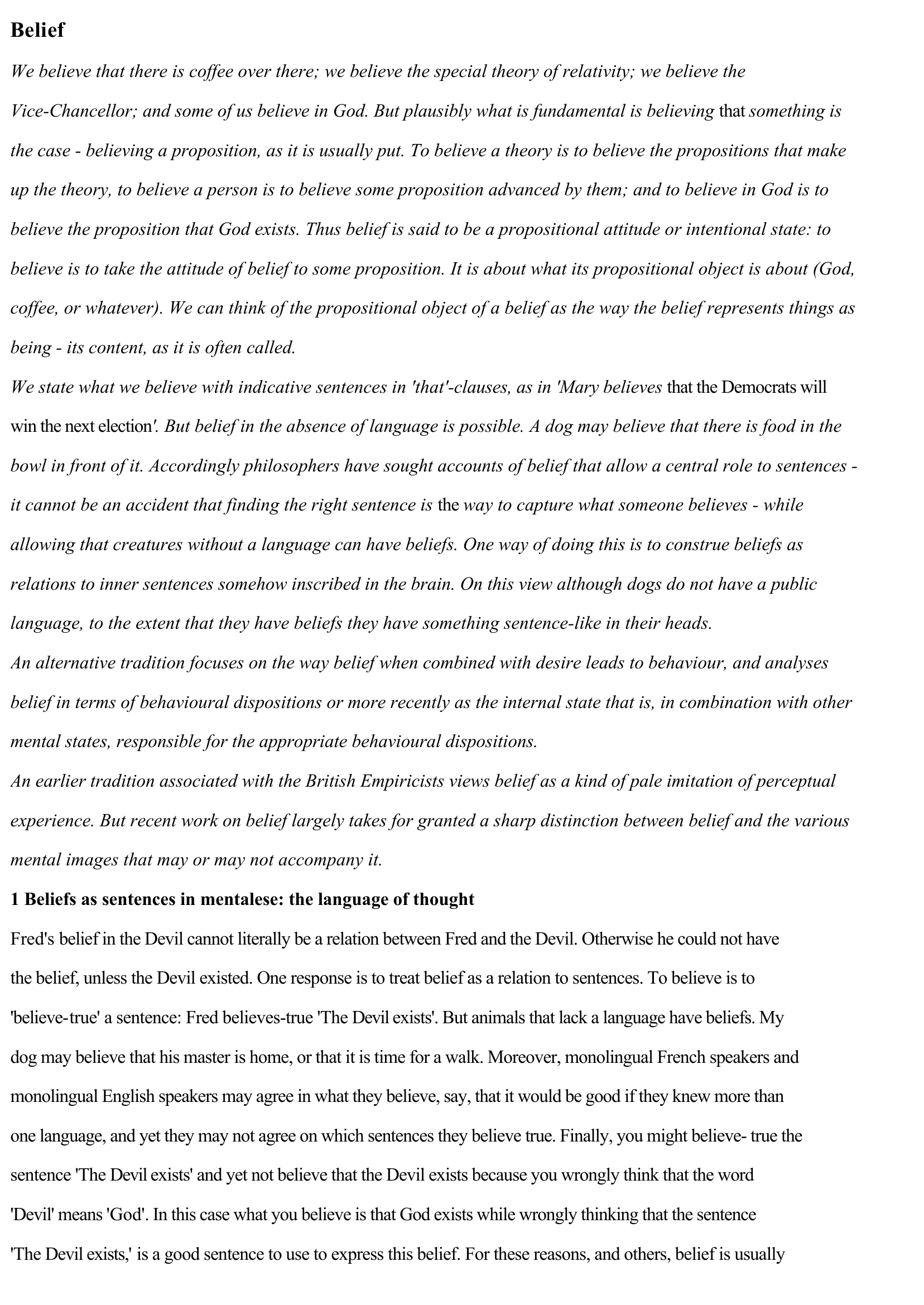Belief
Extrait du document
«
Belief
We believe that there is coffee over there; we believe the special theory of relativity; we believe the
Vice-Chancellor; and some of us believe in God.
But plausibly what is fundamental is believing that something is
the case - believing a proposition, as it is usually put.
To believe a theory is to believe the propositions that make
up the theory, to believe a person is to believe some proposition advanced by them; and to believe in God is to
believe the proposition that God exists.
Thus belief is said to be a propositional attitude or intentional state: to
believe is to take the attitude of belief to some proposition.
It is about what its propositional object is about (God,
coffee, or whatever).
We can think of the propositional object of a belief as the way the belief represents things as
being - its content, as it is often called.
We state what we believe with indicative sentences in 'that'-clauses, as in 'Mary believes that the Democrats will
win the next election'.
But belief in the absence of language is possible.
A dog may believe that there is food in the
bowl in front of it.
Accordingly philosophers have sought accounts of belief that allow a central role to sentences it cannot be an accident that finding the right sentence is the way to capture what someone believes - while
allowing that creatures without a language can have beliefs.
One way of doing this is to construe beliefs as
relations to inner sentences somehow inscribed in the brain.
On this view although dogs do not have a public
language, to the extent that they have beliefs they have something sentence-like in their heads.
An alternative tradition focuses on the way belief when combined with desire leads to behaviour, and analyses
belief in terms of behavioural dispositions or more recently as the internal state that is, in combination with other
mental states, responsible for the appropriate behavioural dispositions.
An earlier tradition associated with the British Empiricists views belief as a kind of pale imitation of perceptual
experience.
But recent work on belief largely takes for granted a sharp distinction between belief and the various
mental images that may or may not accompany it.
1 Beliefs as sentences in mentalese: the language of thought
Fred's belief in the Devil cannot literally be a relation between Fred and the Devil.
Otherwise he could not have
the belief, unless the Devil existed.
One response is to treat belief as a relation to sentences.
To believe is to
'believe-true' a sentence: Fred believes-true 'The Devil exists'.
But animals that lack a language have beliefs.
My
dog may believe that his master is home, or that it is time for a walk.
Moreover, monolingual French speakers and
monolingual English speakers may agree in what they believe, say, that it would be good if they knew more than
one language, and yet they may not agree on which sentences they believe true.
Finally, you might believe- true the
sentence 'The Devil exists' and yet not believe that the Devil exists because you wrongly think that the word
'Devil' means 'God'.
In this case what you believe is that God exists while wrongly thinking that the sentence
'The Devil exists,' is a good sentence to use to express this belief.
For these reasons, and others, belief is usually.
»
↓↓↓ APERÇU DU DOCUMENT ↓↓↓

































